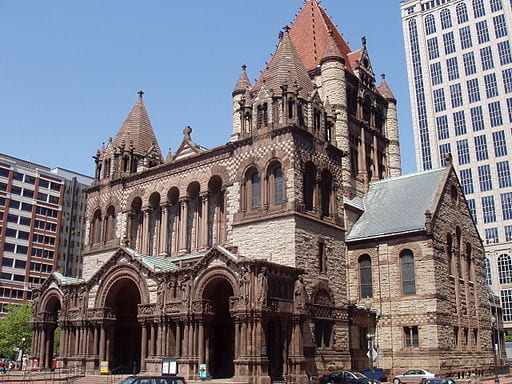- Messages
- 3,007
- Reaction score
- 1,521
- Points
- 108
I intend this to be about the role of religion in social or public life and not about a controversial political topic. It is about I certainly hope this is not controversial here. (It's about not wanting affairs of state to meddle in religious affairs, interfering or promoting- neither one is good)
There are of course some people in the world who are uncomfortable with secularism. However the idea behind the development of a more firmly secular culture in the US at least as I understand, in 19th century America, was to have a neutral public space where so many competing Christian denominations could meet on equal footing and not face controversy or discrimination... although this article offers a more nuanced and complex view:

 www.jhiblog.org
and another take: 3 big numbers that tell the story of secularization in America
www.jhiblog.org
and another take: 3 big numbers that tell the story of secularization in America
I believe secularism probably helped reduce anti-Catholic discrimination -- This is the AI overview of that question
AI Overview
Learn more
Secularism, with its emphasis on separation of church and state and the principle of religious neutrality, has historically played a role in mitigating anti-Catholic discrimination by promoting equality and preventing religious favoritism. By establishing a framework where the state doesn't endorse or favor one religion over another, secularism helps create a more level playing field for all religious groups, including Catholics.
Here's a more detailed explanation:
In summary, secularism's principles of equality, neutrality, religious freedom, and the separation of church and state have contributed to a reduction in anti-Catholic discrimination by creating a more just and inclusive environment where all religions can thrive without fear of state favoritism or discrimination.
There are of course some people in the world who are uncomfortable with secularism. However the idea behind the development of a more firmly secular culture in the US at least as I understand, in 19th century America, was to have a neutral public space where so many competing Christian denominations could meet on equal footing and not face controversy or discrimination... although this article offers a more nuanced and complex view:

Religion in Late-Nineteenth Century American Life?
by contributing editor Yitzchak Schwartz Henry Adams (1838-1918) returned home from his Grand Tour in 1860 and came of age in American elite society as the American bourgeoisie underwent the most profound cultural, social and intellectual shifts it had experienced... Continue Reading →
I believe secularism probably helped reduce anti-Catholic discrimination -- This is the AI overview of that question
AI Overview
Learn more
Secularism, with its emphasis on separation of church and state and the principle of religious neutrality, has historically played a role in mitigating anti-Catholic discrimination by promoting equality and preventing religious favoritism. By establishing a framework where the state doesn't endorse or favor one religion over another, secularism helps create a more level playing field for all religious groups, including Catholics.
Here's a more detailed explanation:
- Promoting Equality:
Secularism, at its core, is about ensuring equal rights and opportunities for all citizens, regardless of their religious beliefs, according to Integrative Psych. This includes Catholics, who have historically faced discrimination in some societies.
- Preventing Religious Favoritism:
Secularism's principle of neutrality prevents the state from favoring or disfavoring any particular religion, including Catholicism, notes Oxford Research Encyclopedias. This helps to ensure that all religions are treated fairly and have the opportunity to thrive without state interference or bias.
- Protecting Religious Freedom:
Secularism, by promoting religious freedom and the separation of church and state, helps protect the right of individuals to practice their religion without fear of discrimination or persecution. This includes the right of Catholics to practice their faith without interference from the state.
- Reducing Historical Prejudices:
In some historical contexts, anti-Catholicism has been fueled by religious prejudice and discrimination, according to a paper by the University of California Press. Secularism, by promoting equality and tolerance, can help to counter these prejudices and reduce the likelihood of discrimination against Catholics.
In summary, secularism's principles of equality, neutrality, religious freedom, and the separation of church and state have contributed to a reduction in anti-Catholic discrimination by creating a more just and inclusive environment where all religions can thrive without fear of state favoritism or discrimination.
Last edited:



